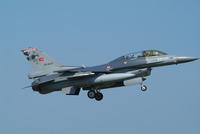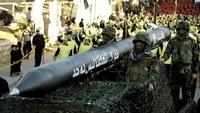-
Cutting edge, animatronic mannequin to test CB protective suits, equipment
The U.K. Defense Science and Technology Laboratory (DSTL) has taken delivery of a new robotic mannequin which will be used to test chemical and biological (CB) protective suits and equipment for the U.K.’s Armed Forces. The “Porton Man” uses state of the art technology and is able to walk, march, run, sit, kneel and even lift its arms as if to sight a weapon just like an infantry soldier.
-
-
DARPA launches Biological Technologies Office
DARPA has established a new technology office — the Biological Technologies Office (BTO) — which will merge biology, engineering, and computer science to harness the power of natural systems for national security. With the establishment of the new office last week, biology takes its place among the core sciences that represent the future of defense technology.
-
-
Making hunches better than 50-50 propositions
Detecting roadside bombs while in a moving vehicle; sensing impending danger based on something unusual at local café; deciding whether that object just launched off the coast is a missile or airliner — these are just a few of many scenarios where there is not a lot of time to make a decision, and where we have to rely on hunches. Hunches are 50-50 propositions, but U.S. Navy researchers want to know whether those facing the unexpected in the heat of battle can be trained to guess right more often than not.
-
-
Invisibility cloaks, stealth technology a step closer

It may seem easy in Hollywood movies, but is hard to create invisibility cloaks in real life because no material in nature has the properties necessary to bend light in such a way. Scientists have managed to create artificial nanostructures that can do the job, called metamaterials. The challenge, however, has been making enough of the material to turn science fiction into a practical reality.
-
-
Prosecutors ask for confidentiality in NY “Death Ray” case

Glendon Scott Crawford,a former General Electric Co. industrial mechanic, is standing trails in Albany, New York, for developed a radiological dispersal device which he tried to sell to both the KKK and to Jewish organizations so they could use it to kill Muslims. Several experts argued the device would not work since it would require massive amounts of electricity, weigh enough to crush most vehicles and would require victims to remain still in order to face prolonged exposure from close-range radiation.
-
-
Turkey shoots down Syrian military jet

Turkish fighter jets on Sunday shot down a Syrian warplane after it violated Turkey’s airspace. The Syrian military confirmed the incident, saying the plane was downed in Syrian airspace while strafing rebel positions. Syrian state TV described the incident as a “blatant aggression,” and said the pilot safely ejected from the aircraft. In 2012 Turkey changed its rules of engagement after Syria shot down a Turkish military plane, saying that any Syrian military plane approaching the Turkish border would be treated as a legitimate target.
-
-
Israel State Comptroller says some IDF units unprepared for chemical attack
Israel’s State Comptroller Joseph Shapira on Wednesday harshly criticized the Israel Defense Force (IDF) for not having sufficient number of gas masks for one of its branches. The comptroller levelled his criticism in the unclassified portion of his discussion of defense issue in his annual report on government performance. In February, Israel has discontinued the distribution of gas masks to the general population, and the dismantling of Syria chemical weapons arsenal has led some Israeli defense experts to question the need for Israel to continue and invest in defensive measures against chemical weapons attacks.
-
-
Cyber war in Ukraine – business as usual for the Russian bear
In a war — declared or otherwise — bravery and perseverance are not enough. Communications are important. Effectiveness means being able to command your troops and gather information. It also means being able to trust your communications. Disrupting and distorting communications is a dark art, the “new black” in overt and covert conflict. This is what we are seeing in Ukraine. Russia appears to be having a fine time covertly sabotaging Ukrainian networks.
-
-
Israel open to offering missile defense coverage to Jordan, Egypt
With worries about Iran military capabilities growing, a U.S. general on Monday said that Israel should consider extending the coverage area of its missile defense systems so they could cover Jordan and possibly Egypt, and an Israeli official cautiously welcomed the idea. The United States has funded most of the research and development work on Israel’s layered ballistic missile and short-range rocket defense systems, and under the Obama administration, Israel’s deployed missile interceptor systems have been integrated with U.S. global missile tracking and regional missile defense systems.
-
-
Pentagon to fund new “kill vehicle” for missile defense
The Pentagon’s fiscal 2015 budget includes $8.5 billion in funding for missile defense programs. About $300 million will be used on a new kill vehicle and it support systems. A Pentagon official said that a new kill vehicle was needed because the current system suffered from “bad engineering” and has failed several tests.
-
-
U.S. Army releases first field manual for war in the electromagnetic spectrum
Sergei Gorshkov, former Admiral of the Fleet of the Soviet Union, once remarked that “the next war will be won by the side that best exploits the electromagnetic spectrum.” The U.S. Army agrees, releasing its first field manualfor Cyber Electromagnetic Activities (CEMA). The Pentagon defines cyber electromagnetic activities as activities leveraged to seize, retain, and exploit an advantage over adversaries and enemies in both cyberspace and the electromagnetic spectrum, while simultaneously denying and degrading adversary and enemy the use of such capabilities, and protecting the mission command system.
-
-
Israel intercepts ship carrying Syrian missiles from Iran to Gaza
In its most daring – and logistically demanding –military operation in about a year, Israeli naval commandos earlier yesterday (Wednesday) intercepted an Iranian arms ship in the Red Sea, more than 900 miles from Israeli shores. The ship was carrying dozens of Syria-manufactured M-302 medium-range missiles from Iran to Islamic Jihad in the Gaza Strip. The M-302 missile would have dramatically increased the capabilities of militant organizations in Gaza. It carries a warhead of 150 kg and has a range of about 300km.
-
-
Libyan Islamists tried to ship mustard gas to Syrian rebels

Libyan officials report that they have recently apprehended several members of a Libyan Muslim extremist militia planning to ship chemical weapons to anti-Assad rebels in Syria. Colonel Mansour al-Mazini of the Libya army said that the Islamists had been caught with a container of mustard gas. The gas was confiscated by Libyan soldiers.
-
-
Black Hawks downed: Bird threat to U.S. military helicopters
Many types of aircraft are vulnerable to bird strikes, estimated to cost the aviation industry $1.2 billion worldwide per year. A new study of strikes to military rotary-wing aircraft found that there were 2,511 strikes to U.S. military aircraft. Each strike costs the military between $12,184 and $337,281. While strikes were recorded in almost all states, Florida, New Mexico, and Georgia had the highest number of incidents.
-
-
How dogs detect explosives: New training recommendations

Researchers have helped determine the science behind how canines locate explosives such as Composition C-4 (a plastic explosive used by the U.S. military). The study found the dogs react best to the actual explosive, calling into question the use of products designed to mimic the odor of C-4 for training purposes.
-
More headlines
The long view
Factories First: Winning the Drone War Before It Starts
Wars are won by factories before they are won on the battlefield,Martin C. Feldmann writes, noting that the United States lacks the manufacturing depth for the coming drone age. Rectifying this situation “will take far more than procurement tweaks,” Feldmann writes. “It demands a national-level, wartime-scale industrial mobilization.”
